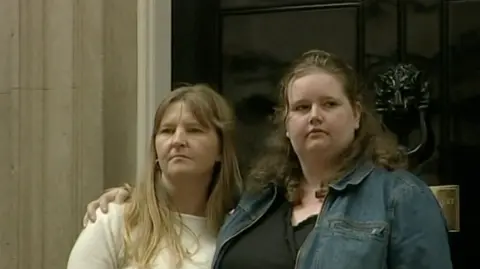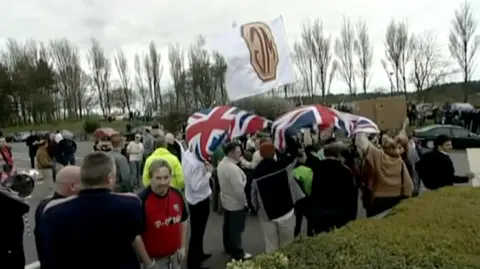'It was devastating' - MG Rover closure 20 years on
"For a woman 20 years ago, a young woman, to stand up for your community against people in suits, was quite a challenge, but I knew if we didn't do it we wouldn't have what we've got today."
April 2005 was a life-altering month for thousands of people living and working around Longbridge in Birmingham.
British carmaker MG Rover collapsed, and as a major part of the local economy underpinning some 18,000 jobs in the area, the impact was enormous.
Gemma Cartwright, whose husband worked at the plant, became the face of a campaign to try and save 6,000 factory jobs.
Now, 20 years on, Mrs Cartwright, 48, has been reflecting on the long-term effects of the closure on the area, and how resilient her community was.

"It was devastating all of a sudden to find out the gates were shutting, it was ripped out of the heart," she said.
Her husband added that he had other jobs after Rover's demise, but "it wasn't the same".
At the time of the closure, the Cartwrights had four young children aged between four and 11 to support.
Mrs Cartwright told the BBC in 2005 that her fight was about protecting manufacturing in the UK, and creating a future that children could look forward to.
Her campaign went national, and she even took her children to a meeting with then prime minister Tony Blair in the hope of a government bailout.

Ultimately, the company did go into administration and has never existed in the same way since.
In 2007, new Chinese owners opened a production line at the factory with most of the components being manufactured in China.
MG announced it would stop making cars at the site in Lowhill Lane in 2016.
But, Mrs Cartwright's efforts ensured the surrounding area was redeveloped, employing local residents along the way.
"We all of a sudden had to think, we can't go on the past, we have got to move forward," she said.
"This is where we live, this is where I choose to live, I want to live here, I am proud of everything that's been achieved."
The Cartwrights say they learnt a huge amount from what happened in 2005, one of the main things being the importance of education.
"Get an education and get the qualifications so you can grab the world to what you can do. That's what we learnt from the collapse," she said.
Follow BBC Birmingham on BBC Sounds, Facebook, X and Instagram.
